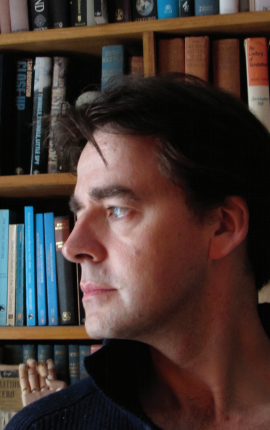
Ignorance Kills
Robert Wilton is a writer, translator, coach and Balkan wanderer. After a dozen
years in the British Civil Service, he was advisor to the Prime Minister of Kosovo
in the years leading to independence, head of policy for the office helping the country
implement independence, and has helped to run an international human rights
mission in Albania. He is the author of five historical novels, and writes on the history and culture of south-eastern Europe. He is an established translator of Albanian poetry, and a documentary screenwriter. He also works as a writing coach and life coach. He is co-founder of The Ideas Partnership, a volunteer-driven charity working for the education and
empowerment of marginalized children, and Chairman of the International Human Rights Film Festival of Albania (https://ihrffa.net/). The text we are publishing is his address at the opening of the last edition of the festival.
Weapons kill: guns, bombs, knives…
Attitudes kill: hatred, fear, jealousy, greed, prejudice…
Ignorance kills, too.
We live in a world where it is possible for us to know more information, more quickly and more easily, than ever before. But the speed and availability of information is creating confusion instead of clarity: in the jungle of possible facts, with our characteristics observed and profiled by those we cannot see, with our data tracked, misled by forces who know what we want to hear and where we will go to hear it, hunted by algorithms, we are prey.
Confused and uncertain, desperate for simplicity and clarity, we are prey to those who offer simple strong messages. We are vulnerable to those who tell us whom to blame for our problems, to those who give us easy answers. In the chaos, manipulation is easy and prejudice is easy, and hate is easy, and they exploit ignorance.
We live in a world where it is possible for us to know other people from different cultures, to visit them, to meet them, more quickly and more easily than ever before. We can meet more foreigners in a one week holiday than our parents met in their whole lives. We can see more foreigners on the streets of our capital cities today, than came in all previous centuries. We can have a more exotic global network of contacts in a single social media friendship group, than most communities have ever known.

But if we remain ignorant about these people, ignorant about the possibilities of global communication, then they will remain foreign, and frightening. Cynical politicians and cynical media present our fellow-humans to us as other, alien, dangerous. Human difference and human interaction – historically the most powerful forces for economic growth and cultural development and intellectual advance – become threats. Humans made strong by genetic diversity are taught to fear difference. Nations created by immigrants are encouraged to reject them.
Ignorance, in the form of racism, murders dozens of people in shopping malls and schools. Ignorance, in the form of extremism, slaughters concert-goers and commuters. Ignorance, in the form of indifference and political ineptness, drowns migrants in the Mediterranean and leaves them to wash up dead on Europe’s beaches, their voices never heard. Each of them is a conversation we never had, a lesson we did not learn, a friend we did not make.
More than two millennia ago, Plato had Socrates saying that if he was wiser than someone else, it was because ‘what I do not know I do not think I know either’. Centuries of scholarship have been based on the principle that humans are distinctive because of our capacity to learn, and that we still have a long way to go. But having created the tools to share and learn knowledge in a way unimaginable even decades ago, we are confused instead of enlightened. And demagogues celebrate and exploit our ignorance: we are first encouraged to build mental barriers, and then physical barriers.
We have the tools – biological and technological – to challenge this. Buried somewhere inside us, we have the hunger to know what we do not know; we have the humanity that seeks to understand those who are unfamiliar to us.
We can challenge our ignorance; we can explore each other; we can be more.
